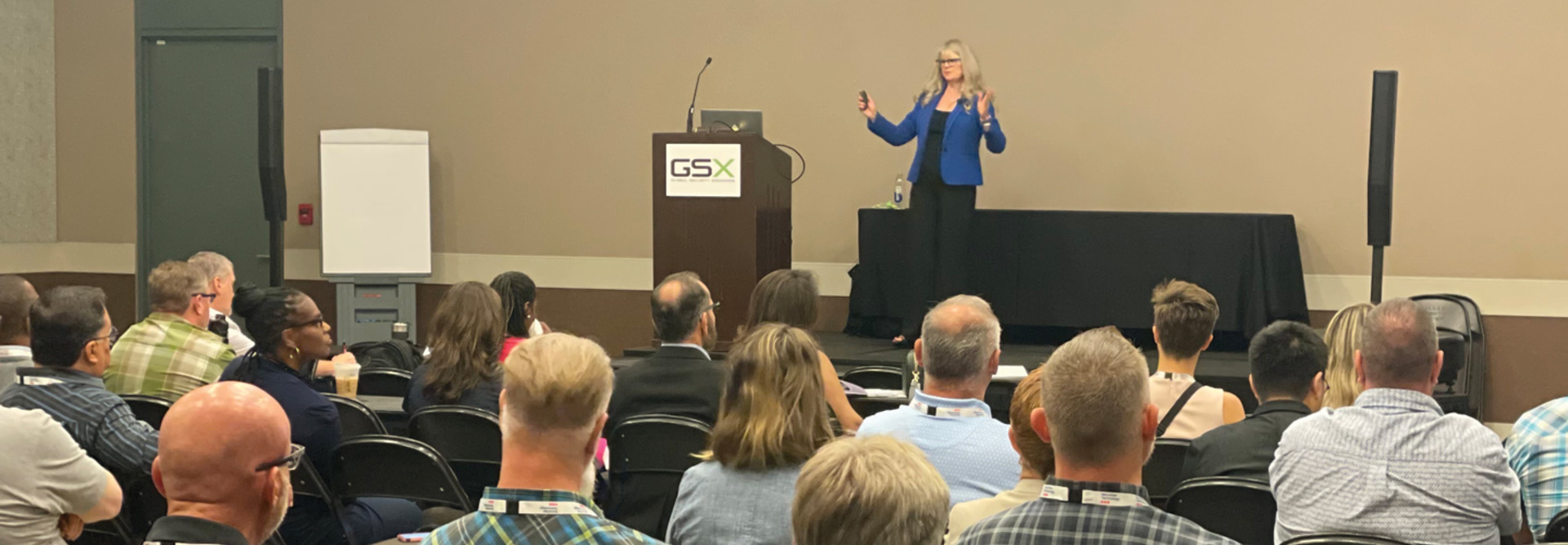Larry Wansley shares experiences from his career in security with attendees at GSX 2023. Photography by Rebecca Torchia, Courtesy of GSX
Janet Lawless, CEO and founder of the Center for Threat Intelligence, also spoke on the importance of being educated and prepared for security emergencies.
Today’s adversaries have more money and more people, Lawless said. They’re clever and smart — but “if you have the right people in place and the right training, you can do it without having the budgets in place,” she added, recognizing that many organizations feel hindered by a lack of security funding.
To prepare for a breach, she said, it’s important to understand adversarial tactics. This helps security teams know what to look for. She also emphasized the importance of training.
Lawless described working in an office where individuals would leave their computers on their desks — open and logged in — when they were out of the room. She noted the physical security and cybersecurity concerns she felt in that workplace.
“Run background checks on everyone, and train everyone to take things off their desk,” she urged.
MORE FROM GSX: Overcome security’s weakest links.
Manage and Maintain Physical Security Technologies
In the modern workplace, physical security often overlaps with cybersecurity. Therefore, teams need good cyber hygiene to help protect a company from threats.
Lawless pointed out some of this crossover as she recalled an incident where hackers accessed an organization’s surveillance cameras and moved them away from the doors. This allowed the adversaries to gain physical access to a building undetected — not because the building was not secure, but because the technology had been poorly secured.
In the session “Smarter Not Harder: Leveraging Smart Building Data to Manage Risk and Improve Security Approach” on Wednesday, Greg Parker, vice president of innovation and portfolio management at Johnson Controls, shared how businesses can use digital tools to manage their physical security solutions.
As many security technologies shift to the realm of IT, Parker noted, users are looking for ways to do systemwide monitoring and optimization. They’re also looking for technology that integrates with other building systems, such as HVAC, emergency response and more.
Due to cameras and systems that aren’t properly managed, coupled with the high cost of manual oversight, some businesses leaders have grown frustrated that their security systems aren’t paying off long-term, Parker said.
“If I can’t afford to have cameras down, I’m sending a person out every night to check that the camera’s working and pointed in the right direction. That’s time-consuming,” he added.
He recommended finding tools with dashboards that bring all the services and solutions into a single pane of glass. Companies can be more productive and secure, he noted, when they can categorize, protect and manage all their assets in one place.
Keep this page bookmarked to stay up to date with GSX 2023 coverage, and follow us on X (formerly Twitter) at @BizTechMagazine or use the event hashtag, #GSX2023.












